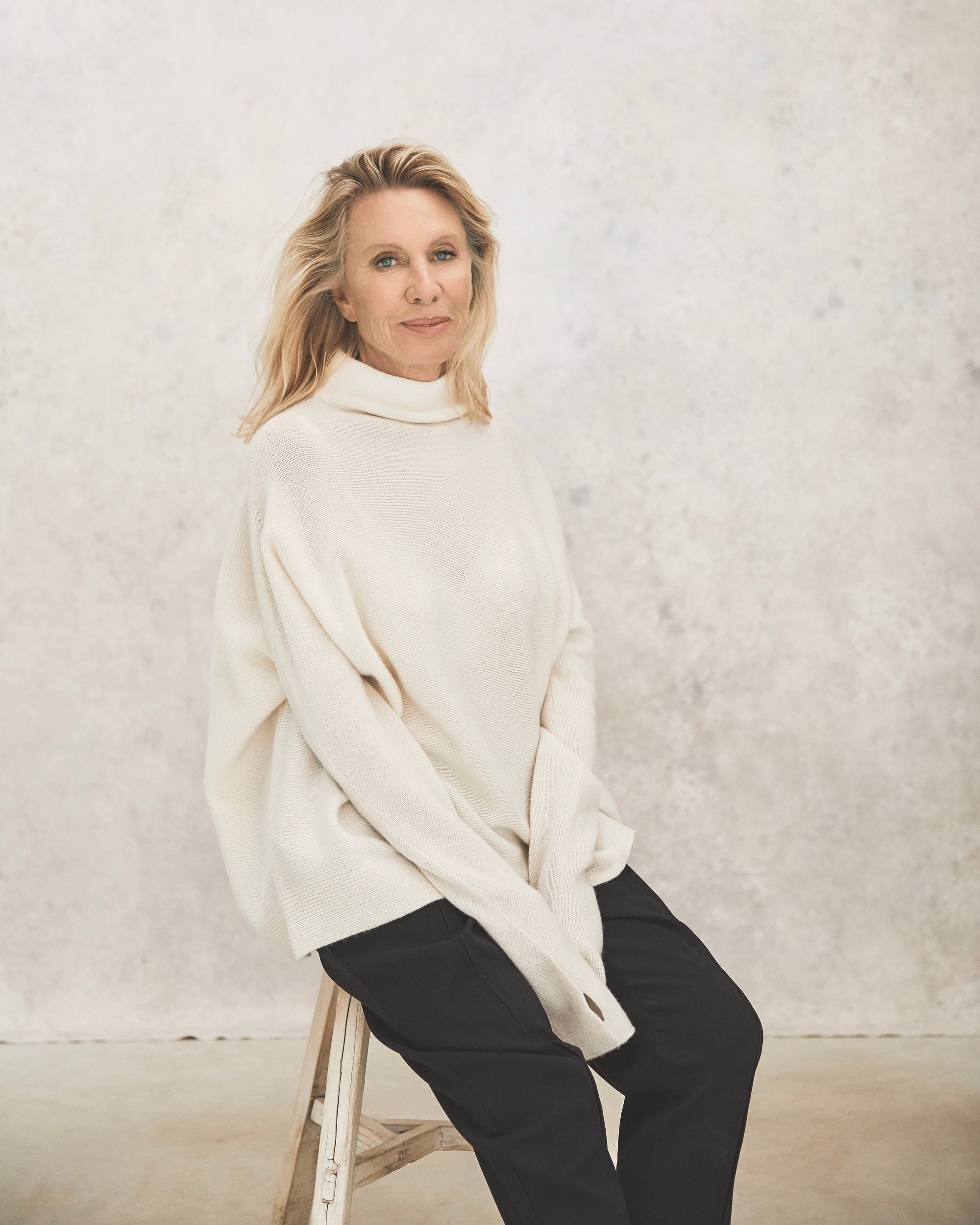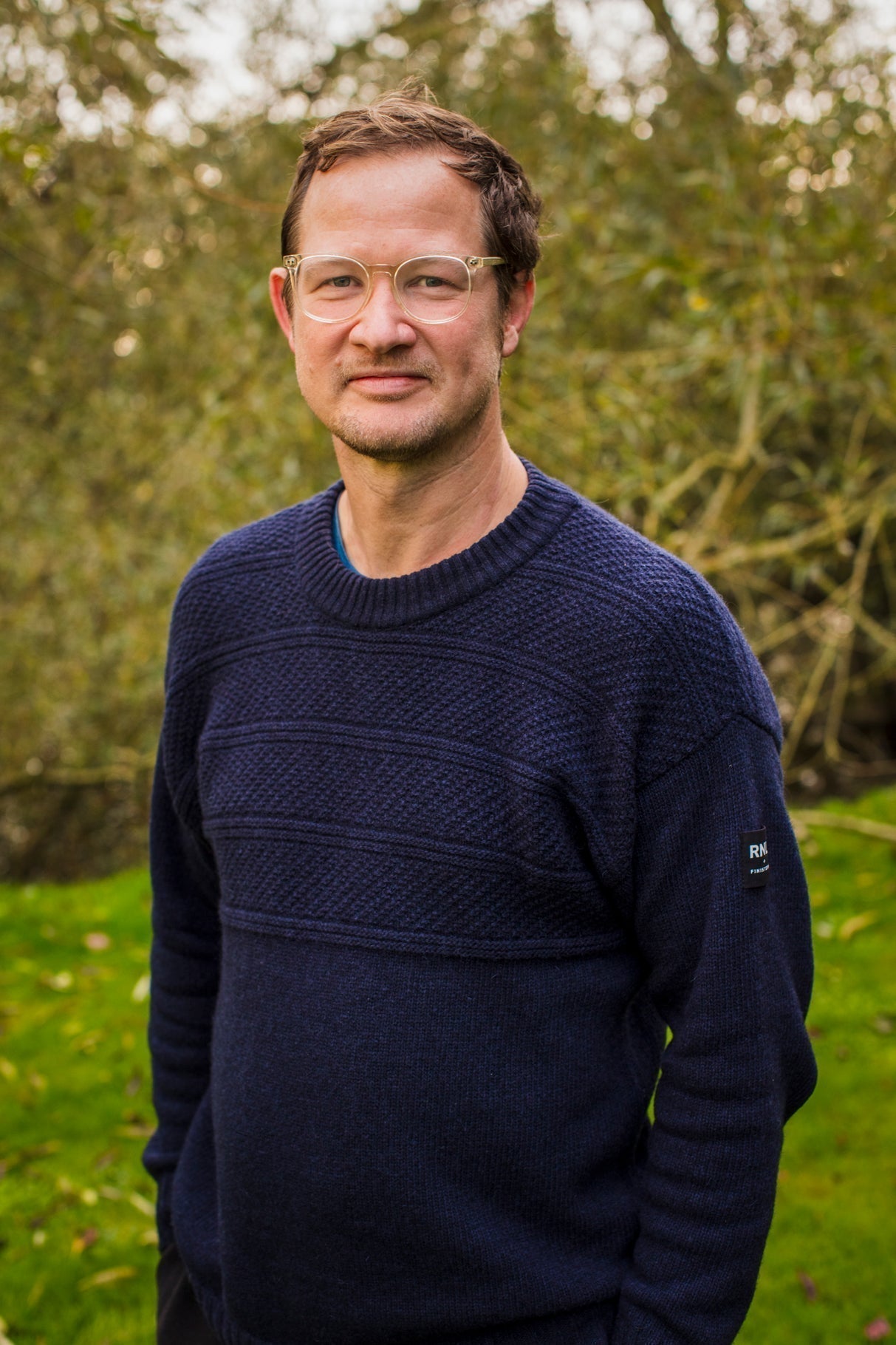Orsola de Castro, a fashion designer who unwaveringly advocates for a sustainable future, is on a mission to change the industry that so seriously harms our planet, and is keen to work towards a solution, one which starts with us all making personal changes to the way we shop, dress and live.
Founded in 1997, years before sustainability was a conversation within the mainstream fashion industry, she founded the brand From Somewhere, which crafted fresh pieces out of discarded knitwear. After showing at London Fashion Week, the brand gained a mass of media attention and debuted collaborations with numerous other labels such as Speedo.
Published in 2021, de Castro’s book, Loved Clothes Last, is a fashion manifesto that calls us all to reflect on how we interact with clothes. The book offers new takes and critiques of serious flaws existing within the industry, while also providing compelling solutions, which we can all adopt, to fight against unnecessary over consumption.
Orsola encourages us to form emotional relationships with the pieces that we wear, calling us to view them as objects of importance rather than disposable items devoid of meaning.

Q1. How does sustainability influence your work and daily life?
So, sustainability is about life, not just mine. So many, so many times I've been asked, is sustainability just a passing trend? And my reply is, we wouldn't be alive if sustainability hadn't been trending for billions of years. I do my best in my daily life, and of course, it is the basis of my entire career as a fashion designer, as a curator, as a mentor, teacher, lecturer and author. It has influenced me as a philosophy and as a practice in every possible way.
Q2. Have you experienced any pivotal moments that deepened your understanding or commitment to sustainability?
Of course, I think in everyone's journeys, there are those moments from which you cannot go back. And for me, it was when, as a young upcycling fashion designer, I became aware of the quantity of waste that was being generated, not just by consumers, but by the industry at large. We as a brand, my brand was called From Somewhere, were one of the pioneers of pre consumer waste upcycling, and this was in the end of the 90s and the early Y2K so really, when the industry started its absolutely crazy mass production, over production and accelerated disposal. So, it was witnessing that and all that was being unnecessarily produced in order to be unnecessarily wasted, that actually gave me not just the confidence but the impetus to carry on.
Q3. Have you encountered any unexpected benefits or opportunities from adopting sustainable practices?
I have only encountered unexpected benefits and opportunities from adopting sustainable practices. There is not one sustainable practice that I have adopted that has been either an effort or a regret.
Q4. In your view, what’s one simple and doable lifestyle change that could have a meaningful impact on sustainability?
Absolutely, start with your own wardrobe. So, I obviously work in the fashion industry, and we know that the fashion industry is hell-bent on the destruction of people and nature. It exploits its workers, it exploits resources, and it produces a whole bunch of things that we will never, ever need. Actually, our waste is presently visible from space. I'm referring to the Akatama Desert. So, to start with your own clothes, to mend them, to repair them, to maintain them, is actually one of the simplest ways to slow down unnecessary production and to prevent accelerated disposal.
Q5. How do you think circular economy principles — eliminate waste and pollution, circulate products and materials, and support ecosystem regeneration — could be adopted in your industry or in a hobby?
Well, this is the problem with words such as circularity, isn't it, or upcycling, for instance. They get co-opted to explain something which is so instinctual. If you look at nature, everything is circular. If you look at life, up until fairly recently, we were certainly more intentional in the way that we preserved, reused, and remade things from what was left behind. I mean, this is embedded in humanity. The nanosecond we learned how to make, we learned how to mend. So, we really don't have to technologize the language of everything. This is common sense and common efficiency. We have only recently forgotten how to do it, which is why it is so important that we adopt sustainable and circular practices, both within the industry and within community. It starts with the individual, with how you care for and look after your clothes. It moves into the community where you could have workshops, teachings, schools, examples of how to collect those clothes, reuse them, remand them as a community, and it should be embedded in every single factory, which ought to have assembly and disassembly lines run by trained textile waste engineers. This would all create a culture of efficiency and common sense. And as I said, it's not so far away that we had this type of thinking more eradicated in our daily practices. We just have to look back to move forward.
Q6. Are there any books, documentaries, or podcasts around sustainability that you feel particularly inspired by and would recommend to others?
Well, I'm going to be a little bit selfish here and recommend you my book, which is called Loved Clothes Last and was published by Penguin Life and translated into Italian, French and German.

Q7. Is there a circular designer or brand you particularly admire and why? This doesn’t have to be in fashion.
I can't be specific about a circular brand because my job is that of supporting emerging sustainable circular fashion brands, upcycling and so on and so forth. So, I know too many, I know too many to give you one. But what I beg of this audience, these readers, is to actually take the time to find them. They're not difficult to find. You can find anything online these days. We're just a bit lazy, aren't we? When it comes to saying, okay, I'll put my money where my mouth is, and I will actually buy from brands I admire. There are so many places and so many ways to find them. And so many all over the world, South America, Africa, Southeast Asia, Europe, North America, absolutely desperate for your custom. Find them and support them. That, as well as maintaining your wardrobe, is one of the most sustainable things that you can do.
Q8. What is the most timeless piece in your wardrobe, where did you find it and how long have you had it for?
Ah ha, the wardrobe question. Again, a no answer. I have clothes that I’ve inherited by my grandmother, my great grandmother, from my cousins, from my best friends. I have clothes I’ve thrifted. I have clothes I’ve received. I’ve swapped, I’ve exchanged with other fashion designers. I have clothes that were made just for me or transformed by me. I love every single one of them. I wear all of them on rotation. I am a clothes keeper.
Q9. What do you consider when buying new clothing?
How long I'm going to keep them for? Who made them? And what's inside them?
Q10. How do you curate your wardrobe?
I don't curate my wardrobe, it curates itself.


